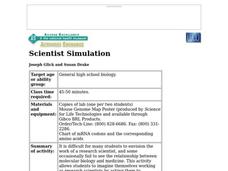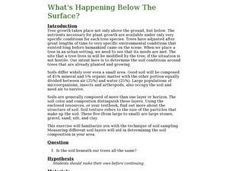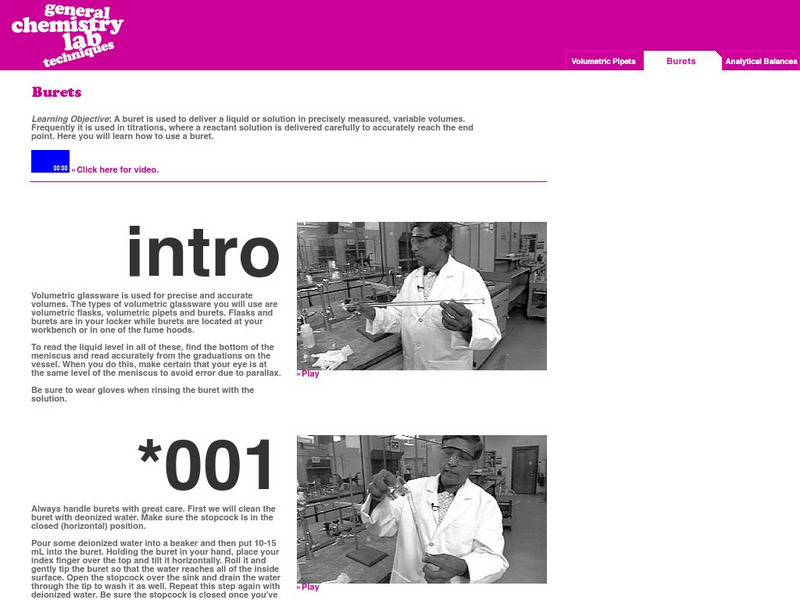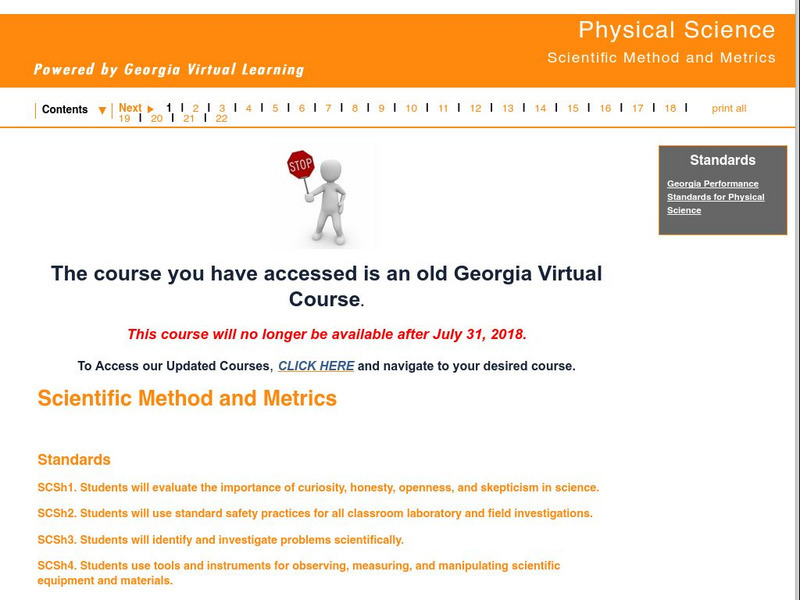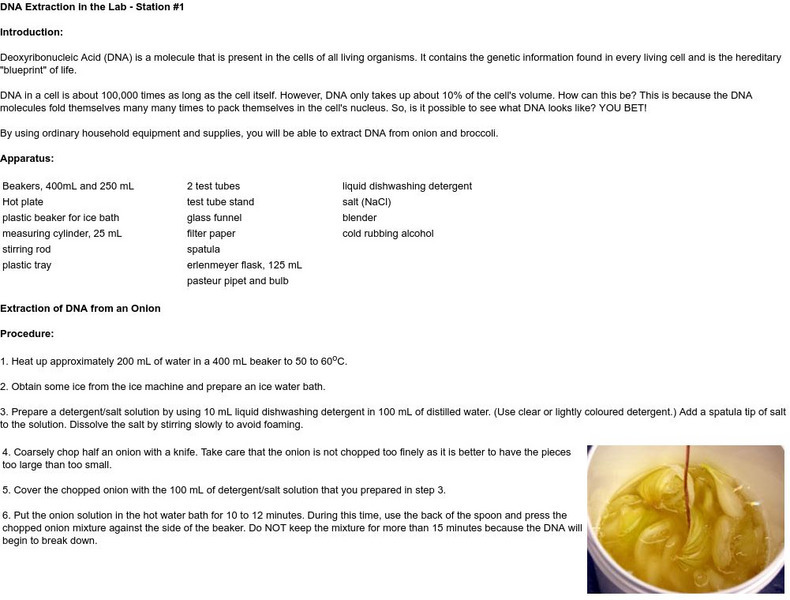Curated OER
Choose Your Own Adventure
Students investigate the historical underground railroad. They also access technology to conduct research and write stories with the railroad as part of the historical fiction. The cumulative assessment is the creation of a book that...
Curated OER
Fossils and Migration Patterns in Early Hominids
Students plot the locations where major fossils of hominids have been found to extrapolate possible migratory patterns.
Curated OER
How Can We Accurately Make Different Solutions of Different Concentrations?
Students work together to create different solutions made from different concentrations of liquids. They record and analyze their data. They answer discussion questions to complete the lesson.
Curated OER
Scientist Simulation
Learners imagine themselves working as research scientists completing the end-steps of a molecular research project and interpreting the data. They compare the gene sequences of normal and abnormal mice and evaluate the protein product...
Curated OER
Rescue the Pattern
Students describe a wide variety of patterns. They extend a wide variety of patterns. Students write rules for a wide variety of patterns. Students represent, analyze, and generalize a variety of patterns with tables, graphs, and words.
Curated OER
How do forces combine?
For this calculus-based worksheet, students experiment how to add forces in order to get a net force of zero with no acceleration while following the directions of a variety of different scenarios.
Curated OER
What's Happening Below The Surface?
Students determine the soil composition of soil layers in their area. They collect soil samples, calculate the percentage soil water content, analyze data, and evaluate each site for future tree growth.
Curated OER
Molar Ratio
Pupils conduct an experiment in which they react sodium bicarbonate with hydrochloric acid to determine the molar ration between the two reactants. Students must write correct formula and a balanced chemical equation and explain how it...
Curated OER
The Cricket and The Plant
Students examine determine the symbiotic relationship between plants and animals as the find ways to naturally reduce carbon dioxide emissions. They study the carbon cycle. They work with probe and graphing calculator to examine the...
Other
Usda: Virtual Labs: Bacteria Sampling (Using Various Disposable Lab Equipments)
In this science simulation, students test milk samples to check for bacterial contamination.
Howard Hughes Medical Institute
Hhmi: Biointeractive: The Virtual Neurophysiology Lab
Investigate the nervous system by looking at nerve cells in this virtual lab. This lab exercise allows students to experience a virtual dissection of a leech to use electronic equipment to explore the electrical activity of nerve cells....
Ducksters
Ducksters: Chemistry for Kids: Chemistry Lab Equipment
Kids learn about the lab equipment used for chemistry experiments such as beakers, flasks, test tubes, stirring rods, pipettes, bunsen burners, gloves, goggles, and more.
Dartmouth College
Dartmouth College: Chem Lab: Repipet
Learn what a repipet is and how it is used in this brief but informative site.
Dartmouth College
Dartmouth College: Chem Lab: Scanning Spectrometer
The scanning spectrometer measures absorbance vs. wavelength for liquid samples. Directions on how to use this instrument are provided here.
Dartmouth College
Dartmouth College: Chem Lab: Volumetric Flask
What is a volumetric flask? What does it look like? How is it used? These questions are answered in this concise and informative site.
Dartmouth College
Dartmouth College: Chem Lab: Flasks, Beakers, & Graduated Cylinders
Find out the uses for Erlenmeyer flasks and beakers and graduated cylinders in this informative site.
Dartmouth College
Dartmouth College: Chem Lab: Analytical Balance
Use this site to learn how analytical balances are used when you need a high degree of precision. Find out the proper use and care of this very sensitive instrument. Requires QuickTime plug-in for some features.
Physics Aviary
Physics Aviary: Scale Lab
This lab is designed to have students learn how to use a meter stick to create and calibrate a scale. This lab can be used as a stand alone lab or as a companion to a live lab using the same equipment. This lab is intended to be done...
Physics Aviary
Physics Aviary: Suspension Bridge Lab
This lab is designed to have students look at how the forces needed to support a suspension bridge change as the object moves across the bridge. This lab is intended to be used as a companion to a live lab with similar equipment.
Science Struck
Science Struck: Uses of Crucible Tongs
Discusses what tongs are used for and why crucible tongs are a very important tool in a laboratory and other settings. Describes the different types of crucible tongs, their uses, and some safety tips.
Science Education Resource Center at Carleton College
Serc: Mn Step: Study of Student Precision Using Volumetric Glassware
This activity is an exercise in using various lab equipment for measuring the volume of a liquid. Data is recorded on a spreadsheet and analyzed to see which tool offers the greatest precision.
Yale University
Yale University: General Chemistry Lab Techniques: Burets
Tutorial shows proper procedure for handling a buret and using this piece of laboratory equipment to measure liquid volume. View accompanying video full-length [18:00] or in segments.
Georgia Department of Education
Ga Virtual Learning: Physical Science: Scientific Method and Metrics
Students have the opportunity to review the scientific method, become familiar with vocabulary terms associated with scientific investigation, and learn about real-world scientific examples where the method is used.
Other
British Columbia Institute of Technology: Extraction of Dna
A lab experiment to extract DNA from an onion using household equipment. Procedure includes both videos and pictures.





